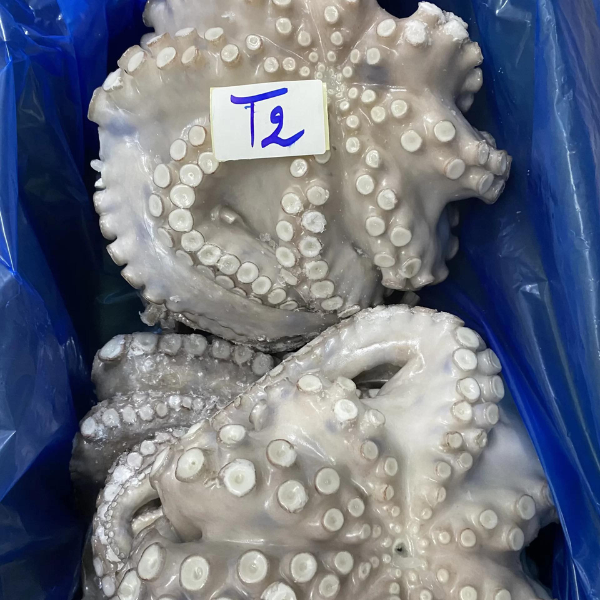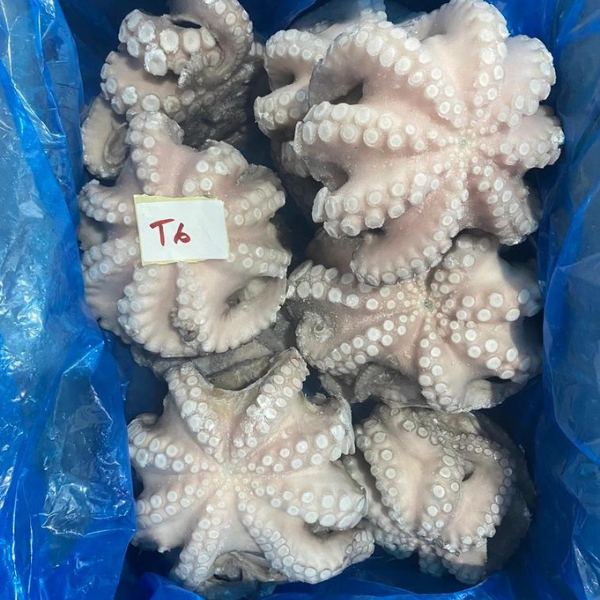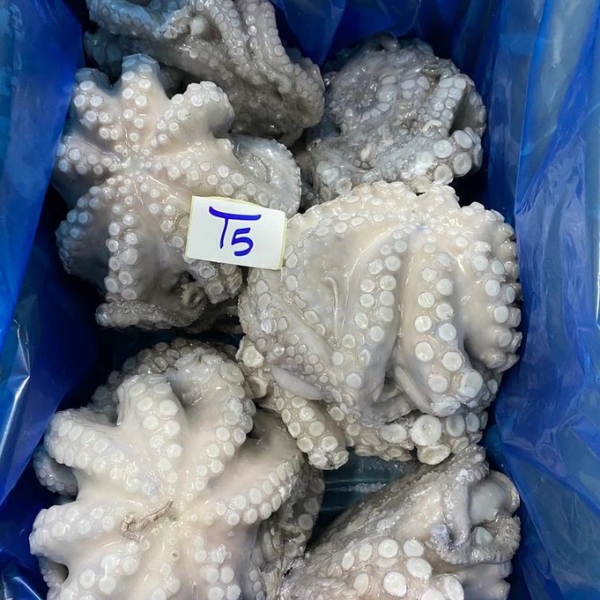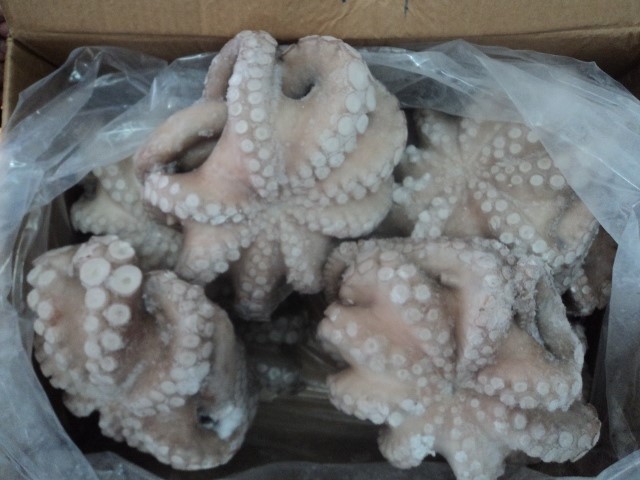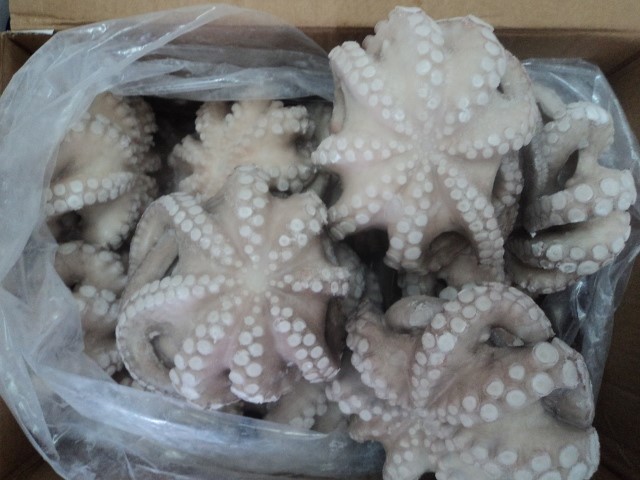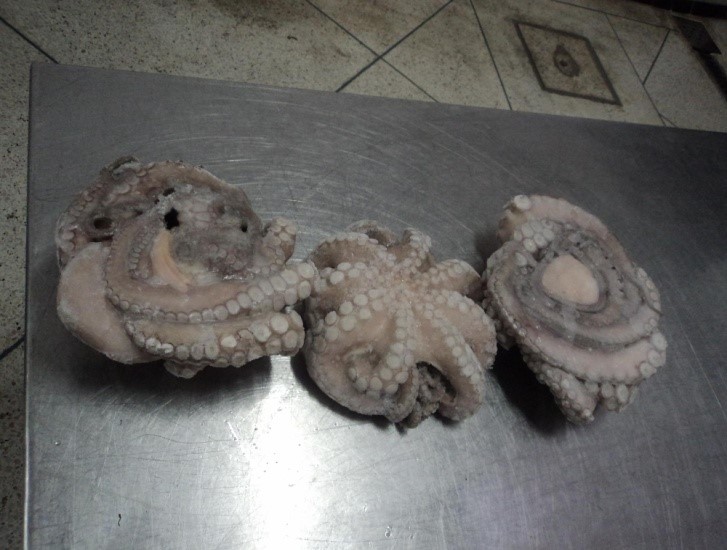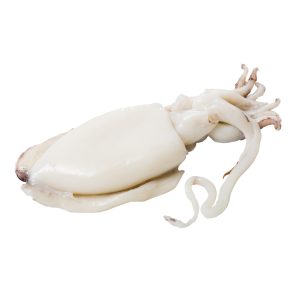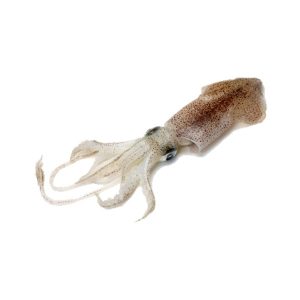Description:
Octopus is a fascinating marine creature that belongs to the cephalopod family. It has a distinct appearance with a soft body, bulbous head, and long tentacles known as arms. Here’s some information about octopus:
Octopuses have a round, gelatinous body with a mantle that houses their internal organs. They have eight long and flexible arms lined with suction cups, which they use for various purposes, including capturing prey, locomotion, and exploration. Octopuses come in different sizes, with some species reaching lengths of several feet. They are highly intelligent and are known for their ability to camouflage, solve puzzles, and exhibit complex behavior.
Key Nutrients:
Octopus is a nutrient-rich seafood option that offers several important nutrients. It is a good source of high-quality protein, which is essential for building and repairing tissues in the body. Octopus is also low in fat and carbohydrates, making it a lean and healthy protein choice. Additionally, octopus contains beneficial vitamins and minerals such as vitamin B12, vitamin C, selenium, copper, and iron.
Preparation:
Octopus can be prepared in various ways, but it often requires cooking methods that help tenderize the meat. Here’s a basic preparation method:
- Cleaning: Start by cleaning the octopus thoroughly. Remove the beak, which is the hard mouthpart located at the center of the arms. Rinse the octopus under cold water and remove any ink sacs or internal organs.
- Tenderizing: To achieve a tender texture, you can use different methods to break down the tough collagen in the octopus. One common technique is to boil the octopus for a short period, usually around 30-40 minutes. Another method is to freeze the octopus before cooking, as the freezing and thawing process can help soften the meat.
- Cooking: Once tenderized, you can cook the octopus using methods such as grilling, boiling, or braising. Grilling over high heat can give the octopus a smoky flavor and crispy texture. Boiling or braising in a flavorful liquid, such as a mixture of water, wine, and aromatics, can result in a tender and succulent octopus.
Serving Suggestions:
Octopus can be served in various ways, and it is often used in Mediterranean and Asian cuisines. Here are a few serving suggestions:
- Octopus Salad: Cook the octopus and let it cool. Slice it into bite-sized pieces and toss it with a vinaigrette dressing, lemon juice, olive oil, and herbs like parsley or basil. Add some diced vegetables, such as tomatoes, cucumbers, and red onions, to create a refreshing and flavorful salad.
- Grilled Octopus: Marinate the cooked octopus in a mixture of olive oil, garlic, lemon juice, and herbs like oregano or thyme. Grill the octopus over high heat until charred and tender. Serve it with a squeeze of lemon and a drizzle of olive oil. Grilled octopus can be enjoyed as an appetizer or a main course.
- Octopus Stew: Braise the octopus in a flavorful broth with tomatoes, onions, garlic, herbs, and spices. Simmer until the octopus is tender and the flavors have melded together. Serve the stew with crusty bread or over a bed of cooked rice or pasta.
- Asian-inspired Octopus: Prepare an Asian-style marinade with soy sauce, ginger, garlic, sesame oil, and a touch of honey or brown sugar. Marinate the cooked octopus for a few hours or overnight. Sear it in a hot pan or grill it until caramelized and fragrant. Serve with steamed rice and stir-fried.


